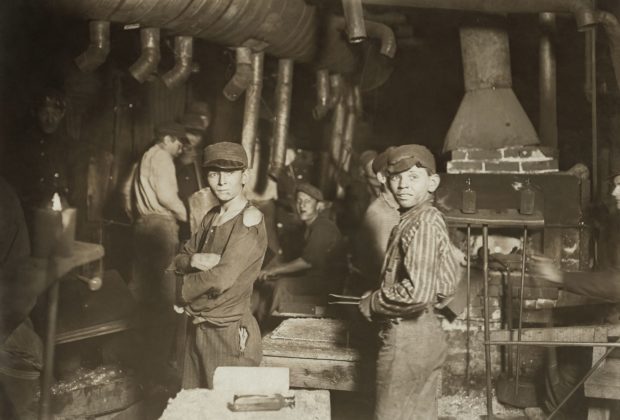To most Americans, the first Monday in September means a three-day weekend and the last hurrah of summer, a final outing at the shore before school begins, a family picnic. The federal Labor Day was signed into law by President Grover Cleveland during his second term in 1894.
With the enormous stresses placed on working people with the Covid pandemic and the changes in our working habits, lives have been altered with no end in sight. Work –labor– in America has been transformed.
“Americans worked less last year on average, but that was because mass layoffs in the spring meant fewer people were working at all. Among those who kept their jobs, there was little change in the amount of time spent working in a given day — about seven and a half hours in 2020, the same as in 2019.”
–“The Pandemic Changed How We Spend Our Time” New York Times (July 27, 2021)
And as Nobel Prize-winning New York Times columnist Paul Krugman wrote in August 2021:
“And workers are, it seems, willing to pay a price to avoid going back to the way things were. This may, by the way, be especially true for older workers, some of whom seem to have dropped out of the labor force.”
But as workers have begun on a grassroots level to organize unions at such places REI, Trader Joe’s, Starbucks, Amazon warehouses, and a LA topless bar, and Hollywood writers have gone on strike, Labor suddenly has muscle. And for the first time in many years, Labor has a friend in the White House.
“The administration’s show of support comes as unprecedented worker organizing — from strike authorizations to work stoppages — hit multiple industries this year, including, transportation, entertainment, hospitality and healthcare.
Workers calling for higher wages, better working conditions and job security, especially since the end of the pandemic, have been increasingly willing to walk out on the job as employers face a greater need for workers.
The Cornell School of Industrial and Labor Relations Labor Action Tracker logged 424 work stoppages — which includes 417 strikes and seven lockouts — involving approximately 224,000 workers in 2022.”
–Source ABC News, August 28, 2023
As we rethink work and life, it is a most fitting moment to consider how we labor and the history of Labor Day. The holiday was born at the end of the nineteenth century, in a time when work was no picnic. As America was moving from farms to factories in the Industrial Age, there was a long, violent, often-deadly struggle for fundamental workers’ rights, a struggle that in many ways was America’s “other civil war.” (From “The Blood and Sweat Behind Labor Day”)

“Glassworks. Midnight. Location: Indiana.” From a series of photographs of child labor at glass and bottle factories in the United States by Lewis W. Hine, for the National Child Labor Committee, New York.
The first American Labor Day is dated to a parade organized by unions in New York City on September 5, 1882, as a celebration of “the strength and spirit of the American worker.” They wanted among, other things, an end to child labor.
In 1861, Lincoln told Congress:
Labor is prior to and independent of capital. Capital is only the fruit of labor, and could never have existed if labor had not first existed. Labor is the superior of capital, and deserves much the higher consideration. Capital has its rights, which are as worthy of protection as any other rights. Nor is it denied that there is, and probably always will be, a relation between labor and capital producing mutual benefits. The error is in assuming that the whole labor of community exists within that relation.
Today, in postindustrial America, Abraham Lincoln’s words ring empty. Labor is far from “superior to capital.” Working people and unions have borne the brunt of the great changes in the globalized economy.
But the facts are clear: In the current “gig economy,” the loss of union jobs and the recent failures of labor to organize workers is one key reason for the decline of America’s middle class.
Read the full history of Labor Day in this essay: “The Blood and Sweat Behind Labor Day” (2011)